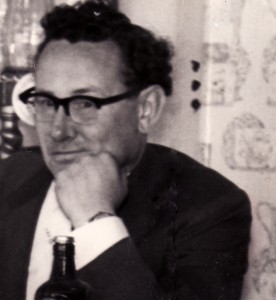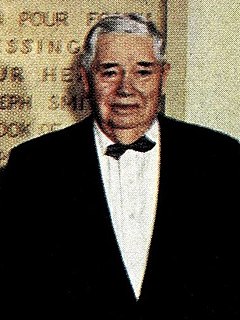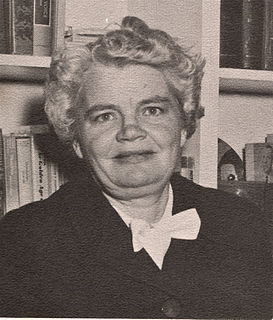A Quote by Oscar Wilde
Experience was of no ethical value. It was merely the name men gave to their mistakes. Moralists had, as a rule, regarded it as a mode of warning, had claimed for it a certain ethical efficacy in the formation of character, had praised it as something that taught us what to follow and showed us what to avoid. But there was no motive power in experience. It was as little of an active cause as conscience itself. All that it really demonstrated was that our future would be the same as our past, and that the sin we had done once, and with loathing, we would do many times, and with joy.
Quote Topics
Active
Avoid
Cause
Certain
Character
Claimed
Conscience
Done
Efficacy
Ethical
Experience
Follow
Formation
Future
Gave
Had
Itself
Joy
Little
Loathing
Many
Men
Merely
Mistakes
Mode
Motive
Name
Once
Our
Our Future
Our Past
Past
Power
Praised
Really
Regarded
Rule
Same
Sin
Something
Taught
Taught Us
Times
Us
Value
Warning
Would
Would Be
Related Quotes
I was remembering the things we had done together, the times we had had. It would have been pleasant to preserve that comradeship in the days that came after. Pleasant, but alas, impossible. That which had brought us together had gone, and now our paths diverged, according to our natures and needs. We would meet again, from time to time, but always a little more as strangers; until perhaps at last, as old men with only memories left, we could sit together and try to share them.
When Luke had descended into the River Styx, he would've had to focus on something important that would hold him to his mortal life. Otherwise he would've dissolved. I had seen Annabeth, and I had a feeling he had too. He had pictured that scene Hestia showed me—of himself in the good old days with Thalia and Annabeth, when he promised they would be a family. Hurting Annabeth in battle had shocked him into remembering that promise. It had allowed his mortal conscience to take over again, and defeat Kronos. His weak spot—his Achilles heel—had saved us all
If God had perceived that our greatest need was economic, he would have sent an economist. If he had perceived that our greatest need was entertainment, he would have sent us a comedian or an artist. If God had perceived that our greatest need was political stability, he would have sent us a politician. If he had perceived that our greatest need was health, he would have sent us a doctor. But he perceived that our greatest need involved our sin, our alienation from him, our profound rebellion, our death; and he sent us a Savior.
Once you can understand something in a way that you can shove it into a computer, you have cracked its code, transcended any particularity it might have at a given time. It was as if we had become the gods of vision and had effectively created all possible images, for they would merely be reshufflings of the bits in the computers we had before us, completely under our command.
When we realize a constant enemy of the soul abides within us, what diligence and watchfulness we should have! How woeful is the sloth and negligence then of so many who live blind and asleep to this reality of sin. There is an exceeding efficacy nad power in the indwelling sin of believers, for it constantly inclines itself towards evil. We need to be awake, then, if our hearts would know the ways of God. Our enemy is not only upon us, as it was with Samson, but it is also in us.
We humans have had from time unknown the compulsion to name things and thus to be able to deal with them. The name we give to something shapes our attitude toward it. And in ancient thought the name itself has power, so that to know someone's name is to have a certain power over him. And in some societies, as you know, there was a public name and a real or secret name, which would not be revealed to others.
No individual and no generation has had enough personal experience to ignore the vast experience of the human race that is called history. Yet most of our schools and colleges today pay little attention to history. And many of our current policies repeat mistakes that were made, time and again, in the past with disastrous results.
I am persuaded, from all the facts that have come to me, that it would have been possible, if we had functioned as the Lord intended us to function, if we had paid our tithes and our offerings as the Lord intended us to pay them, we might have gone on without one dollar from our federal government. And has it ever occurred to you what a mighty influence we should have exercised for good and for respect and for all of the virtues that we have been taught, and that God has commanded us to exercise and cultivate and practice, if we had just followed along what he has asked us to do?
I — I mean," Kate stumbled on, "that with us there is a time past and time present, and time future, and with your gods perhaps there is time forever; but God in Himself has the whole of it, all times at once. It would be true to say that He came into our world and died here, in a time and a place; but it would also be true to say that in His eternity it is always That Place and That Time — here — and at this moment — and the power He had then, He can give to us now, as much as He did to those who saw and touched Him when He was alive on the earth.
Shame usually follows a pattern—a cycle of self-recrimination and lies that claims life after life. First, we experience an intensely painful event. Second, we believe the lie that our pain and failure is who we are—not just something we’ve done, or had done to us—and we experience shame. And finally, our feelings of shame trap us into thinking that we can never recover—that, in fact, we don’t even deserve to.






































